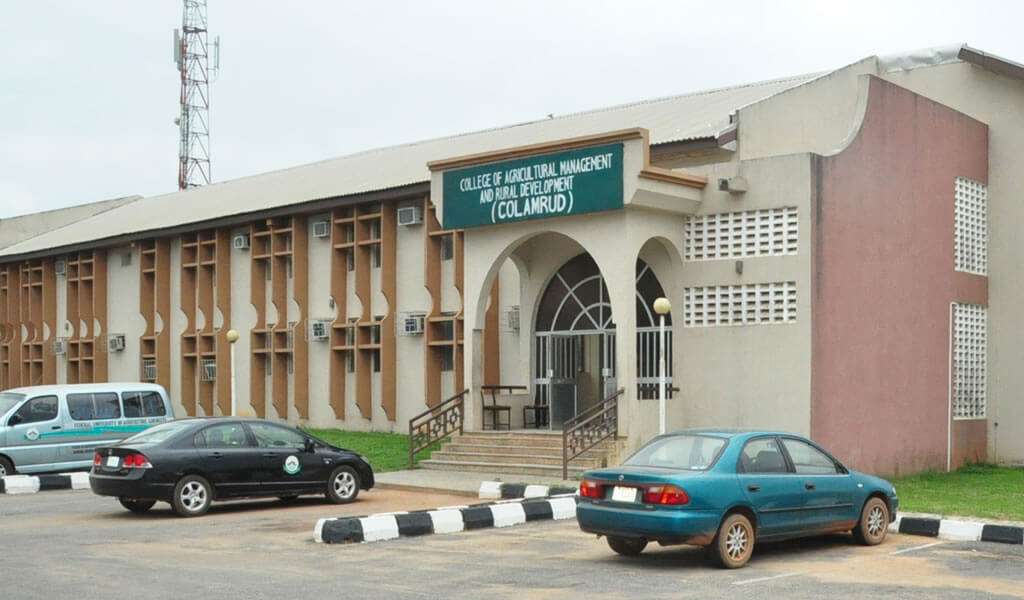Preamble
The College of Agricultural Management and Rural Development (COLAMRUD), which started as College of Agricultural Management, Rural Development and Consumer Studies (COLAMRUCS) in 1988, was renamed COLAMRUD in 2009 when some of its Consumer Studies programmes were carved out and expanded to form the College of Food Science and Human Ecology (COLFHEC). Currently, the College (COLAMRUD) comprises three academic departments, namely:
- Department of Agricultural Administration;
- Department of Agricultural Economics and Farm Management;
- Department of Agricultural Extension and Rural Development.
Philosophy and Objectives
The primary philosophy that guides the training of students is the production of skilled manpower that is adequately furnished with the comprehensive information required for engaging in economic agricultural production in an environment characterized by rural setting and adequate land endowment. Such knowledgeable professional manpower has to be produced in an atmosphere with the widest possible human and material resources, through the adoption of effective techniques of instruction, and exposure to the actual practice of agriculture. Consequently, there are opportunities for formal training at the undergraduate and postgraduate levels for the acquisition of basic and higher degrees respectively.
These training programmes are mounted through classroom instruction, laboratory practical, field demonstration, and workshop practice. Deriving from the foregoing philosophy, the major objectives are to:
I. assist in the attainment of self-sufficiency in the production of basic food; ii. contribute to the achievement of the goal of marked increase in the production of agricultural raw materials to support the growth of our several industries;
iii. enhance the production and processing of export produce, with emphasis on relevant agricultural production, processing, storage, preservation and distribution;
iv. enhance the rural employment opportunities and the attendant
improvement of the quality of rural life;
v. evolve effective ways of protecting agricultural land resources from ecological degradation such as erosion, pollution, etc.; and
vi. develop new patterns of agricultural structures and government policies which clearly demonstrate that agriculture is an important part of our national economy.
Mandate and Activities
The College contributes to the Bachelor of Agriculture (B.Agric.) degree programme by offering core, elective and General Studies courses at 100 – 400 levels of all options of the B.Agric programme, and final year (500 level) courses leading to award of B.Agric. Degree in the following three options:
- Agricultural Administration
- Agricultural Economics and Farms Management
- Agriculture and Rural Development Studies (ARDS)
In addition to these, the College, through the Department of Agricultural Economics and Farm Management shall, hopefully from 2018/2019 Academic Session, offer additional programmes leading to the award of the following Bachelor Degrees:
- Sc. Agribusiness Management & Finance
- Sc. Environmental & Resource Economics, and
- Sc. Food Economics & Consumer Studies
The College is involved in various practical oriented research activities aimed at solving societal problems in the areas of innovation in agriculture, and post-harvest processing and technology, improvement and techniques.
In compliance with the tripodal mandate of the University, that is, teaching, research and extension, the College provides resource persons in subject matter area for extension activities of the Agricultural Media Resources and Extension Centre (AMREC).


